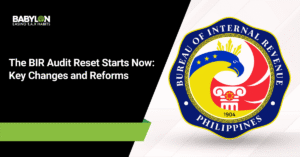As the Philippines climbs to 8th in the world for crypto adoption—moving an estimated $40 billion in crypto value between July 2023 and June 2024, according to Chainalysis—the SEC isn’t sitting back. On May 30, 2025, it issued Memorandum Circulars Nos. 4 and 5 to lay down the law for Crypto-Asset Service Providers (CASPs) in the country.
What Counts as a CASP?
These rules hit a wide range of players: crypto exchanges, wallet providers, token platforms, brokers, dealers, custodians, marketing platforms—even foreign CASPs targeting Filipino users.
Key Requirements for CASPs
- Capitalization & Incorporation: You need to be a domestic corporation with ₱100 million in paid-up capital (cash or property—no crypto). Your primary business purpose must clearly state CASP activity.
- Physical Presence: You need at least four local staff and an actual office in the Philippines, open during business hours.
- Licensing: No crypto services without a proper SEC license.
Registration and Compliance Checklist
CASPs must submit detailed documentation—from business rules to KYC/AML systems, risk controls, tech architecture, and disclosure plans. Every crypto-asset being sold in the Philippines must also be registered with the SEC. If it qualifies as a security, it must comply with the Securities Regulation Code.
Investor Protection Is Serious Business
Customer crypto-assets must be kept separate from company funds. Unauthorized use for proprietary trading? Prohibited. CASPs must assess client risk tolerance and protect users with proper custody, encryption, and local data storage. They’re also expected to perform regular pen testing and keep a complete audit trail.
Trading Standards & Reporting
Assets must pass a technical and reputational check before listing. SEC approval is required before any trading. Once operational, CASPs are required to file monthly, quarterly, and annual reports—and keep all data for at least five years.
Fees and Penalties
- Registration Fee: ₱50,000
- Supervision Fees: Tiered based on revenue
- Penalties: Start at ₱50,000 and climb to ₱200,000, with license suspension or cancellation for repeated offenses
- Late Filing: ₱10,000 + ₱500 per day
Who Benefits from the New Rules?
- Investors get stronger protection and transparency.
- Legit crypto companies can operate with more credibility.
- The government improves its AML/CFT standing and keeps innovation within regulated boundaries.
- Consumers see fewer scams and more trustworthy platforms.
Implementation
The PhiliFintech Innovation Office (PhiliFINNO) will oversee all of this. The rules take effect 30 days after publication in major newspapers.
Bottom Line
If you’re building or marketing anything crypto in the Philippines, this is your new bible. The SEC isn’t banning the future—it’s just putting a hard regulatory floor under it. Get your docs in order, your compliance tight, and your books clean. Because in this new crypto era, the cost of being unlicensed isn’t just a slap on the wrist—it could shut you down.
DISCLAIMER: This article is developed by subject matter experts at Babylon2k. This is for general information only and does not constitute expert advice. It is based on current regulations and may not account for all related topics. Any tax or compliance guidance provided cannot be used to avoid penalties or promote specific actions. Laws and interpretations may change over time, which could affect the accuracy of this report. We are not obligated to update this advisory if new regulations arise.
How We Can Help
Babylon2k’s B.E.T.H. can also help you when you need more information and clarification on taxes, businesses, finance, laws, and more. Learn More >
☎️ Get in Touch!
- Request a Free Consultation | Request Consult
- Message us on Viber/ Whatsapp Number @ +63-927-945-3382.
- Email us directly at [email protected]
RESOURCES
Download SEC Memorandum Circular Nos. 4 and 5, Series of 2025






